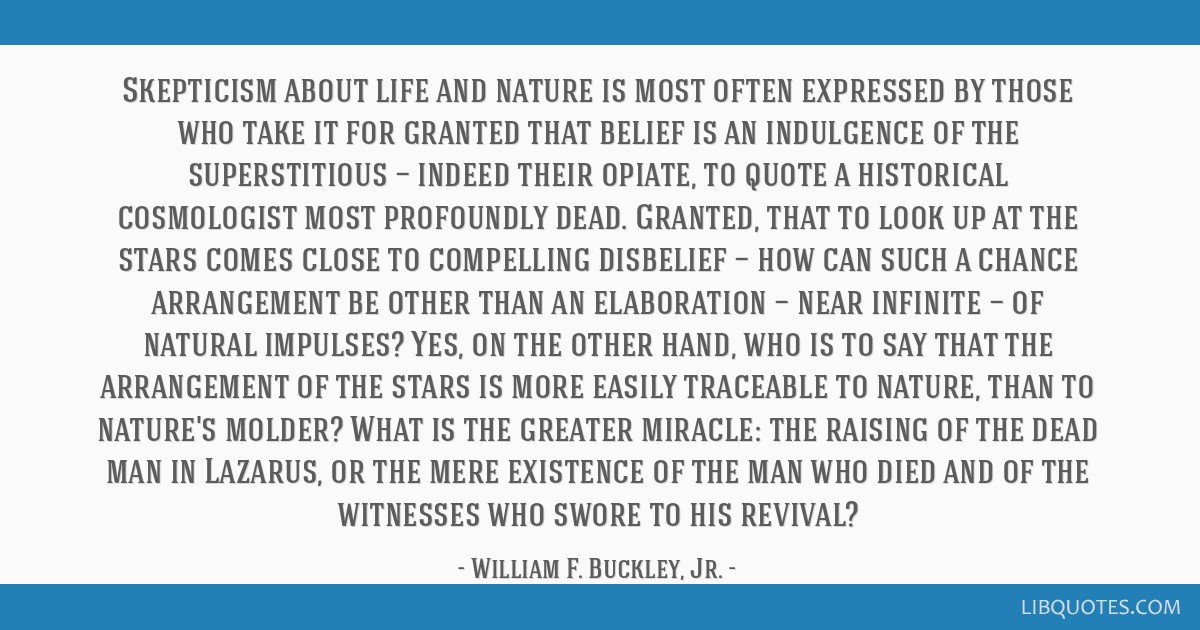Skepticism about life and nature is most often expressed by those who take it for granted that belief is an indulgence of the superstitious — indeed their opiate, to quote a historical cosmologist most profoundly dead. Granted, that to look up at the stars comes close to compelling disbelief — how can such a chance arrangement be other than an elaboration — near infinite — of natural impulses? Yes, on the other hand, who is to say that the arrangement of the stars is more easily traceable to nature, than to nature's molder? What is the greater miracle: the raising of the dead man in Lazarus, or the mere existence of the man who died and of the witnesses who swore to his revival?
"How Is It Possible to Believe in God?" on NPR Morning Edition (23 May 2005).























